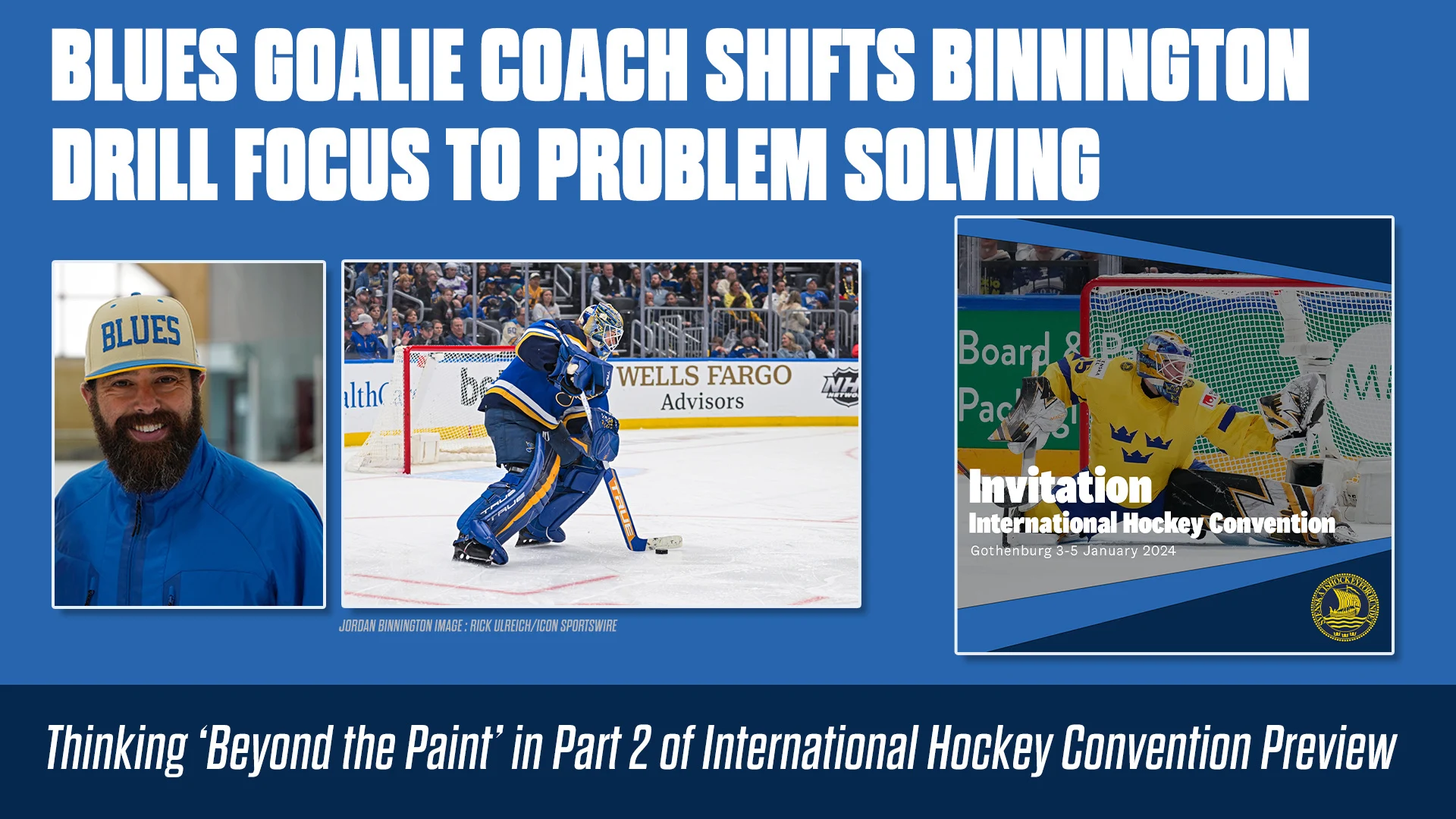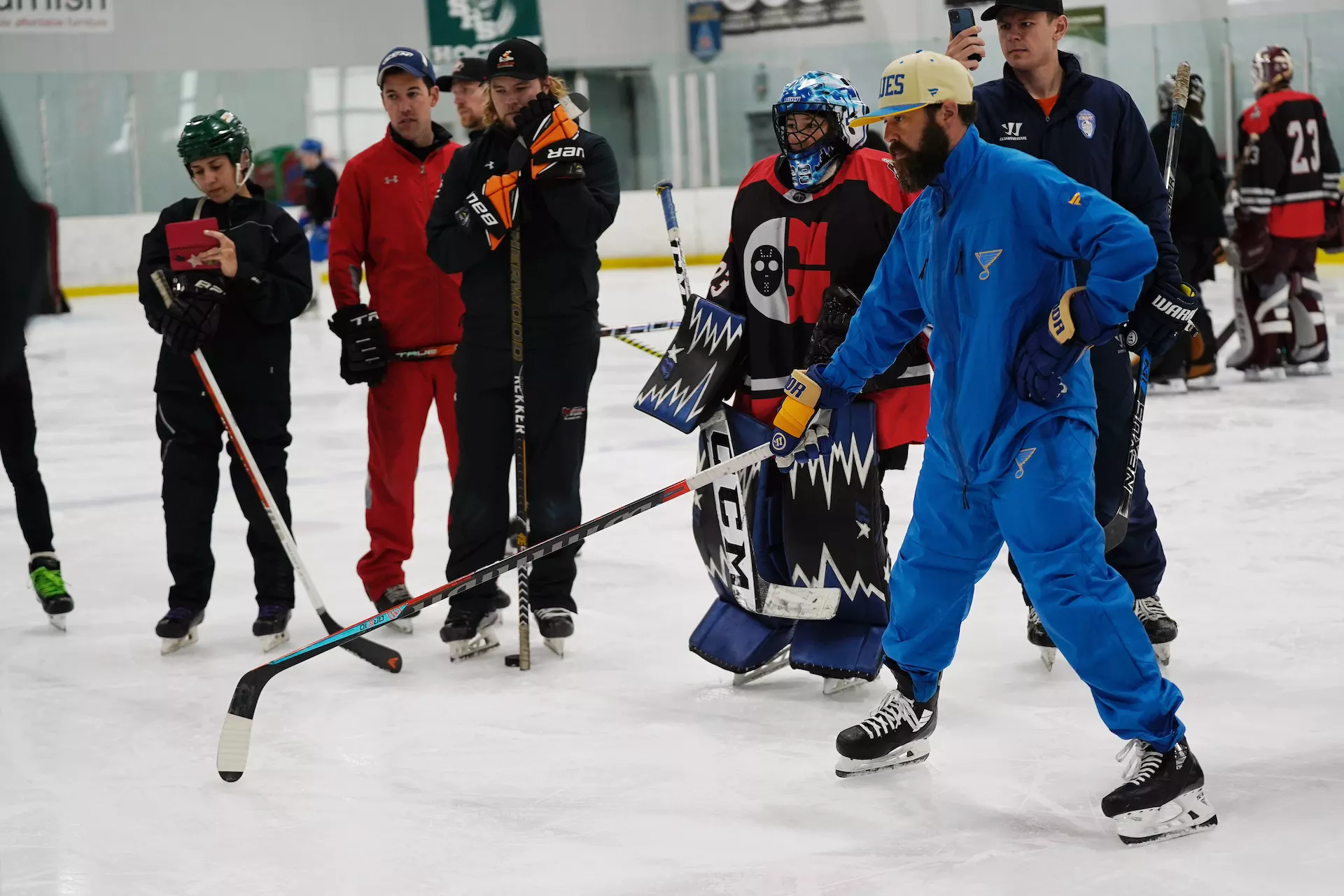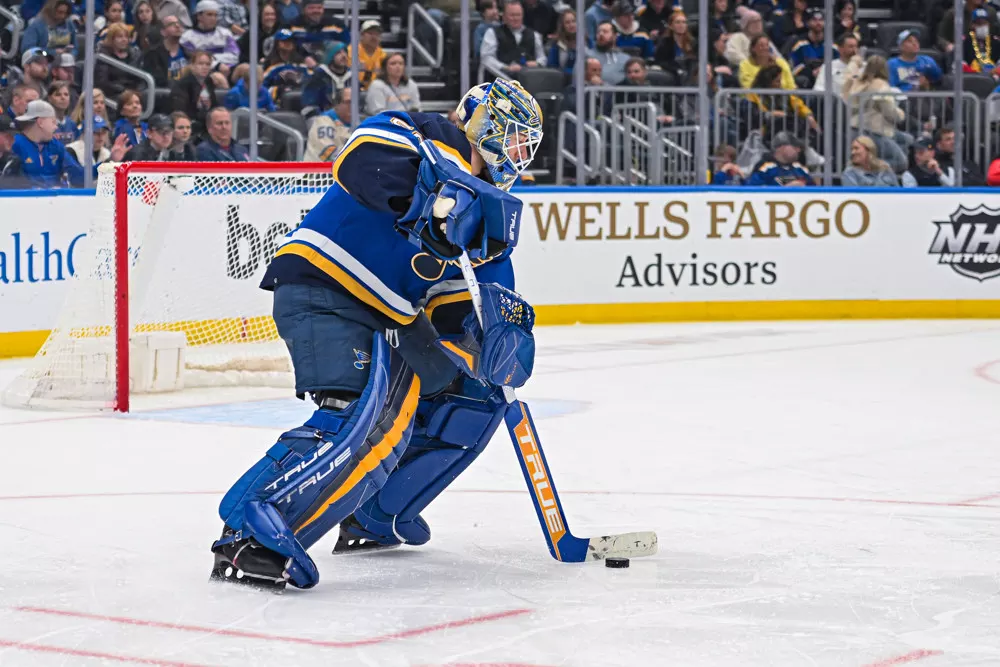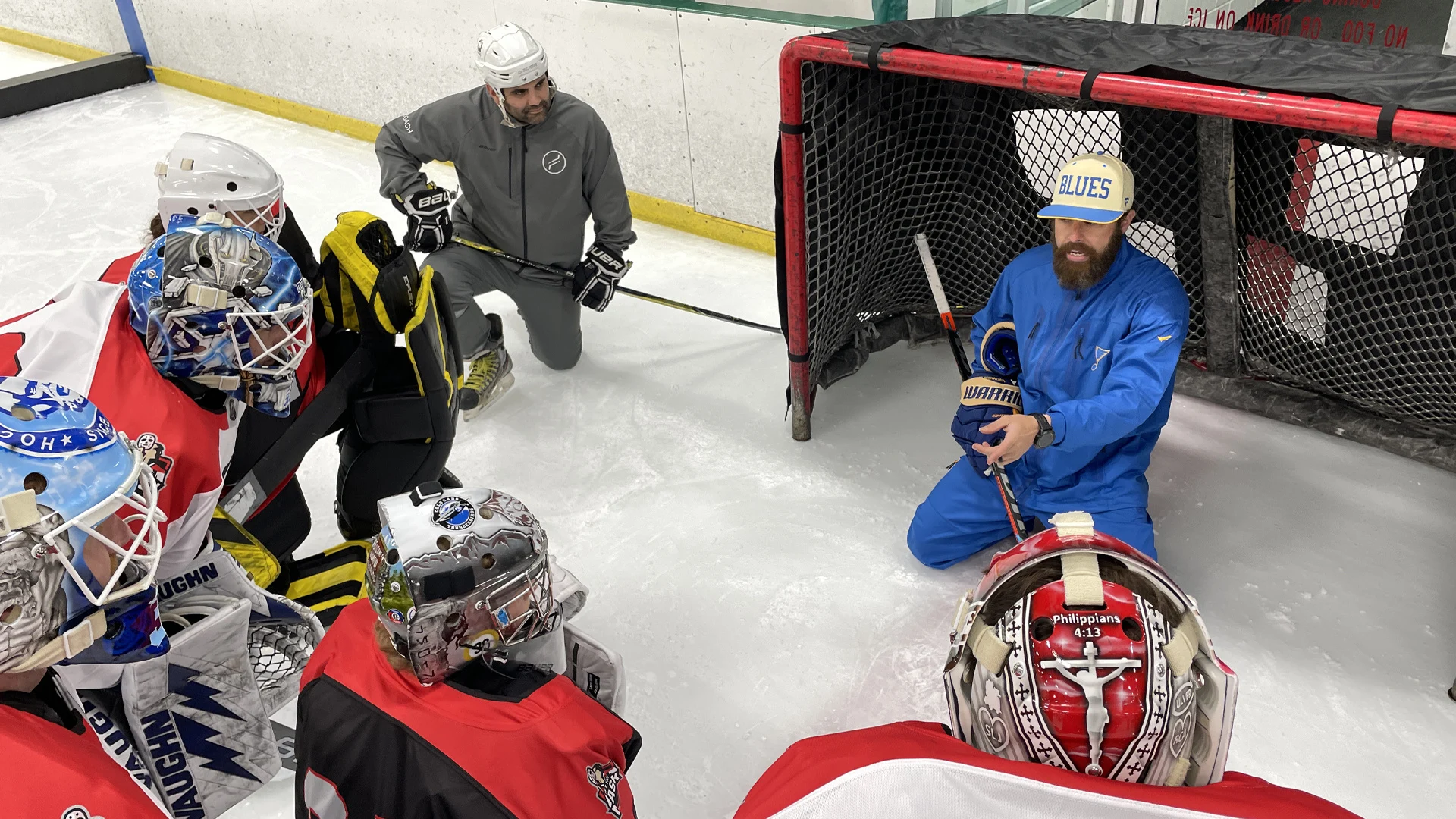
By: Justin Goldman – The Goalie Guild
During the medal round of the upcoming 2024 World Junior Championships in Gothenburg, the Swedish Ice Hockey Association will be hosting their International Hockey Convention.
This coaching symposium features 140 guests from 14 different countries, a slew of expert speakers, and three days of presentations, group discussions, and of course some tasty fika breaks. To learn more about the event, check out Part 1 of my preview. You can also follow along as I document my time in Sweden on my free SubStack.
For the final part of this preview, I briefly caught up with St. Louis Blues goalie coach Dave Alexander, who is one of the guest speakers (virtually) for the convention.

Dave Alexander – St. Louis Blues
“As I engage in many conversations with coaches, they become very goalie-centric and focus too much on what happens inside the paint. While that’s an important thing to do as a goalie coach, we often forget there’s a whole game happening outside of the paint,” Alexander explained. “Oftentimes, the answers for what we’re seeking are found out there.”
Simply put, when it comes to developing skills, the environment matters. A lot.
In fact, there’s a huge wave of emerging research in areas where sports science, psychology, movement, and skill acquisition all merge together. One aspect of this research explores how using methods like constraints and variability within training environments can develop more dexterous and adaptable athletes.
This season, Dave has been studying some of these emerging dynamics of skill acquisition and exploring their potential within the context of an NHL practice. Some of his early feedback and insights will be shared in Gothenburg.
“I really want to point to the fact that goaltenders are at the receiving end of a very fast game. Sometimes we lose sight of that, and we end up more worried about how the goalie is moving,” Alexander said. “We forget that the goalie is moving inside of a relationship, and that relationship is in a partnership with the game itself.”
To give a concrete example of this idea, Alexander has previously presented on Jordan Binnington’s elite puck-moving skills and how those skills continue to develop. But it’s not just the passing and the skating that make Jordan so good; it’s his ability to move the puck in “harmonious flow” with his defensemen in all types of situations.

photo: Rick Ulreich/Icon Sportswire
Having proper technique is a constant in every practice, but by increasing the variability and ‘aliveness’ of the drills, Alexander is also focusing Jordan’s attention on making different types of reads. This includes finding ways to challenge his perceptual skills by exploring things like when to draw in a forechecker, where to direct the flow of traffic, how to read off his teammates, when it’s okay to take risks, when to be unpredictable, and how to spontaneously solve problems that result in a clean zone exit.
So beyond training specific technical skills through rote repetition, Alexander is training Binnington’s ability to solve different problems within different game-like contexts. This means thinking “beyond the paint” and designing drills that incorporate more constraints and randomness, but still serve a purpose.
Learning how to do this effectively as a goalie coach doesn’t happen overnight, which is why events like the one in Gothenburg are so important. These conventions are not only where new ideas converge and learning takes place, but where new opportunities emerge. They are catalysts for growth, innovation, and progress, even if you’re already at the highest level.
As one of the co-founders of NetWork Goaltending, an international goalie coaching program that hosted symposiums from 2014 to 2018, Alexander knows first-hand the value these events bring to the coaching community.
Subscribe to the online magazine for goalies, coaches and goalie parents.
Includes unlimited access to our archives of over 800 articles with 1000+ videos, plus a full year of content with the Pros to come. Gift subscriptions available.
Subscribe to the online magazine for goalies, coaches and goalie parents.
Includes unlimited access to our archives of over 800 articles with 1000+ videos, plus a full year of content with the Pros to come. Gift subscriptions available.

For myself, that direction is due East. I’ll leave Colorado on January 1, attend the convention from January 3-5, and then return home a few days later. I haven’t been overseas to study goaltending development since 2018, so this trip has been years in the making. Beyond what I’ll learn, I’m also excited about all the friendships I will make.
“Getting to know people at these conferences is important because they present a lot of layers of opportunity, and sometimes it’s even how jobs are created,” Alexander said. “Equally as important is the idea that if our coaches are growing, so too are our goaltenders. While this is a coaching event, the reality is that our goalies end up being the winners. And that is ultimately why we’re all in this.”
Comments
Let's talk goaltending!
We welcome your contribution to the comments on this and all articles at InGoal. We ask that you keep it positive and appropriate for all - this is a community of goaltenders and we're here for each other! See our comment policy for more information.



